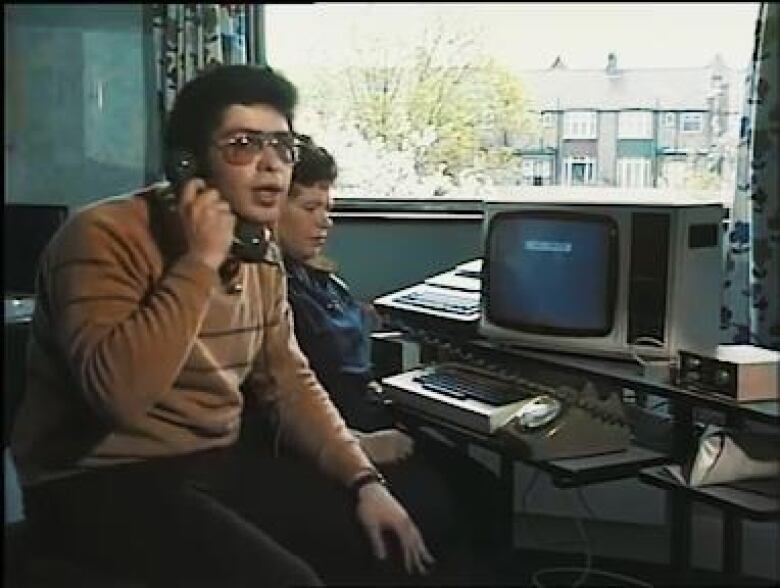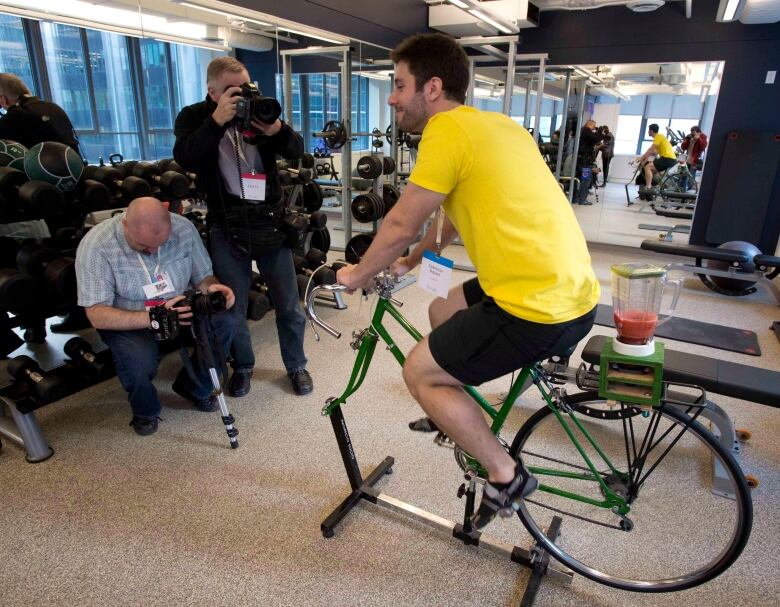The office got a reboot before the pandemic, but is it time to cancel it now for good?
The Early Edition columnist Uytae Lee explores the future of the traditional workplace

This is an opinion column by Uytae Lee, who is currently a contributing columnist on CBC's The Early Edition. For more information aboutCBC's Opinion section, please see theFAQ.
Is the office as we know it over?
Well, turns out the pandemic is not the first time people considered this question.
We need only look back to the oil crisis of 1973 when,due to complex international politics, gas was in really short supply in North America the gas required to get people back and forth to work.
This got people thinking that instead of moving employees from hometo the office, maybe the office could come to the home.
At the same time, companies like IBM realized there were other benefits to remote work. Namely, talent could be hired anywhere without encroaching on valuable office space.

By 2009, 40 per cent of IBM's workforce didn't work out of an office which,according to the company, saved $100 million annually. Many employees started to likework-from-home policies for the flexibility and autonomy they offered.
Over time, remote workbecame increasingly possible due to advances in technology that made work devices more portable andaffordable.In the 1970s, we had rotary phonesand filingcabinets. Now,we have smartphones and freaking Wi-Fi!
Nonetheless, the traditional office model has persevered.
The office's millennial makeover
Before the pandemic, companies were actually investing more money into offices than ever before and many were even reversing their work-from-home policies.
In 2017, IBM announcedit would bring 2,600 remoteemployees back to the office. Yahoo, Reddit, Bank of America, and Best Buy also decided to roll back remote-work programs recently.
So what happened? Why did the office get a reboot?
Well, maybe because itgot a millennialmakeover.
Google's 2003 glow-up included replacing cubicles with glass walls, adding vibrant colours to the decor, and bringing in sleeping pods, massage therapists and gourmet food.
Thetrend spread to other companies, especially in the creative, consultingand tech industries, wherethe office is increasingly being upheld has an ideas incubator.

So, should you go back after the pandemic?
First, I think it depends on the type of work you do.
If you frequently work with others, the office may be the best spot for communicating with each other. Butif your work is mostly self-driven with the occasional meeting, the office may actually be a distraction.
Second, this doesn'thave to be an all or nothing conversation.
You can do a bit of both and, in theory, get the benefits of home and the office. If the pandemic has taught us anything, it's that being forced into only one kind of workspace... kind of sucks.
And third,we're all different and the way we want to relate to our work is, too.
Some people like to connect withcolleagues face to face and like to keep their work and personallivesseparate. Others prefer the autonomy of working outside of an office and the flexibility it can offer.
Finally, we should remember that where we work isjust onesmall aspect of working. In fact, I find a lot of the values we associate with our work spaces havemore to do with work culture.
In a YouTube videoshowcasing Facebook's headquarters, CEO Mark Zuckerberg says he wanted the companyto have an open office because it creates a"very open and transparent culture... where everyone can see what everyone else is working on."
But in the same way that glass walls don't guarantee transparency, open format offices don't ensure team collaboration, and it's hard to be autonomous and flexible from home if you have constantZoom meetings.
All of this is to say, the pandemic hasn't necessarily made the office obsolete,it's just rekindled a decades-long debate about how and where we do our best work, and what works best for everyone.
With files from The Early Edition













_(720p).jpg)


 OFFICIAL HD MUSIC VIDEO.jpg)
.jpg)



























































































